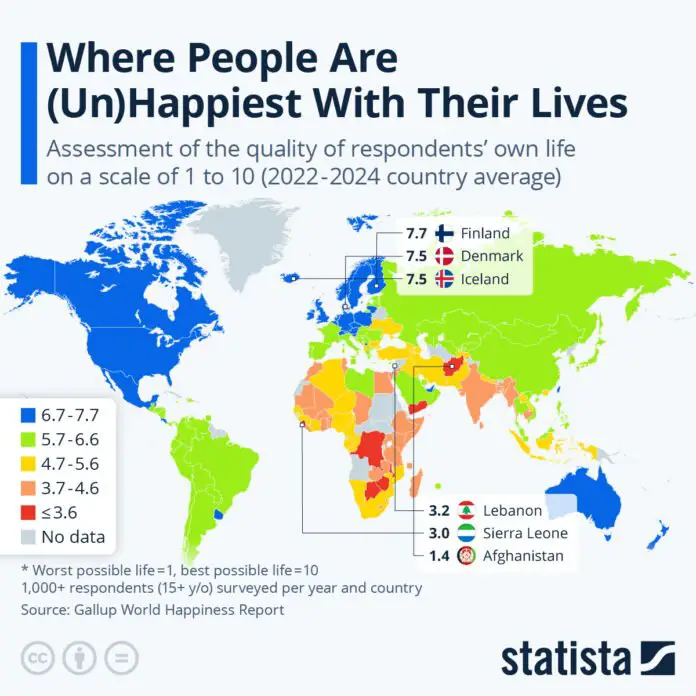Staff Reporter
In 2012, the United Nations designated March 20 as the International Day of Happiness, also known as World Happiness Day.
This annual observance aims to raise awareness about fostering a more inclusive, equitable, and balanced approach to economic growth that enhances the happiness and well-being of all.
While happiness and satisfaction are inherently subjective, the team behind the World Happiness Report has once again released a country ranking that highlights stark contrasts between Western industrialized nations and those in Asia and Africa.
To gauge the satisfaction levels of respondents in 147 countries, participants were asked to rate their life satisfaction on a scale from one to ten. The results were averaged from 2022 to 2024 for each nation.
As shown in the chart below by Statista’s Anna Fleck, Finland leads the pack with a score of 7.736, followed by Denmark at 7.521 and Iceland at 7.515. Conversely, Lebanon (3.19), Sierra Leone (3.00), and Afghanistan (1.36) reported the lowest levels of satisfaction among their residents.
The United States ranks 24th out of 147 countries in this year’s World Happiness Report.
The findings indicate that unemployment negatively impacts life satisfaction, along with concerns about mental health issues and violent crime. While doubling one’s income can enhance happiness, the report highlights that the boost in perceived well-being from performing kind acts—such as donating to charity, volunteering, or helping a stranger—is even more significant.
Additionally, the expectation of having a lost wallet returned contributes to an even greater increase in life ratings.
It’s essential to understand that the World Happiness Report’s rankings are not based solely on objective measures like gross domestic product per capita, life expectancy, or the quality of social systems. The authors clarify that these factors are examined as “supporting elements” in the report’s narrative but do not directly influence the overall score.

